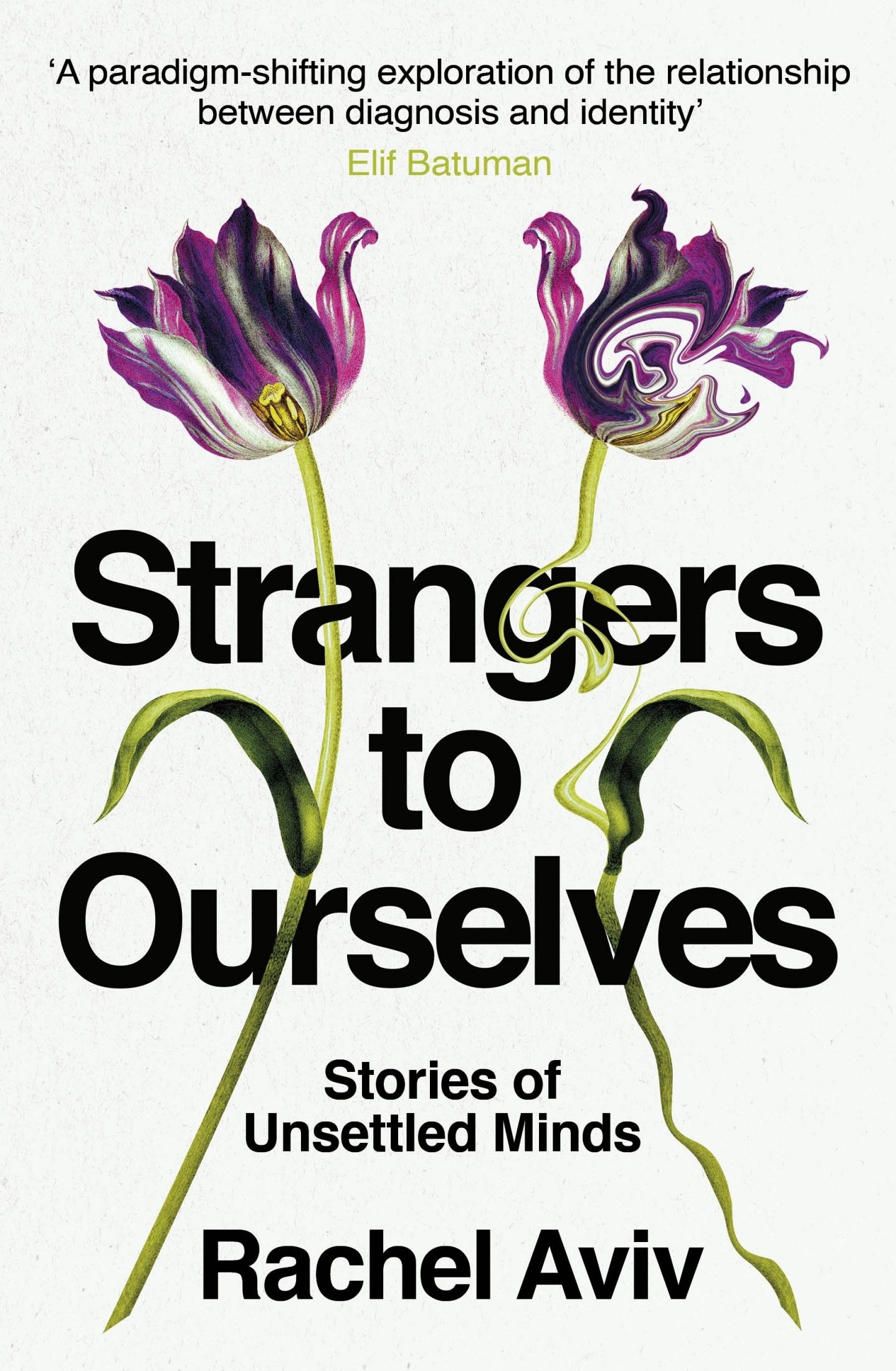[notes for the book were taken with kobogarden. The full list of book highlights can be found here.]

I came across this book in a bookshop in Brussels, a few months ago; it touted an "exploration of the relationship between diagnosis and identity", and such a theme has been on my mind for the last few months. Rachel Aviv's previous work as a journalist for the New Yorker is unknown to me, and so I had very little to expect.
The book follows four different people's stories — and Rachel's own with the diagnosis of anorexia at a very young age — in situations related to mental health that had the influence of a psychiatric diagnosis and intervention. Not all stories are from American citizens, nor all typical caucasian, nor all male; in that sense, it is a refreshing read (the chapter on Naomi, an african-american woman, is particularly striking to my, let's say, monocultural European context). Aviv is quite involved in the telling of each story; there were plenty of interviews, not only with the patients (when possible) but with close family and surrounding community.
A few ideas are put in place: there's an overarching concern to highlight the duality of psychotheraphy vs. psychiatry — how arguably the latter is enhanced by the former —; how a psychiatric diagnosis might provoke an overidentification with symptoms — plus a great quote on the stereotypical well-informed psychiatric patient — or how not only the surroundings of the ailed might exacerbate the condition, a diagnosis is usually blind to the holistic situation of the patient as well.
Some of this is not mainstream news. On the tremendously high-grossing Lost Connections edited a few years ago, Johann Hari argued for the real nature of SSRI medication, useful only as a (fleeting) relief of suffering while the true cause of symptoms remained unaddressed. And Aviv has, herself, experimented widely with some drugs: her use of Lexapro, recounted at the end of the book, comes across as almost recreational; there are a few very enlightening pages about the true effects of the compound and its withdrawl, and whose honesty and vulnerability brought another very recent book to mind: Tao Lin's Trip, an uncanny memoir that leaves nothing unspoken about his various psychedelic experiences.
For adolescents who go on medications when they are still learning what it means to be their best self, they may never know if they have a baseline, or what it is. “It’s not so much a question of ‘Does the technology deliver?’” Deshauer said. “It’s a question of ‘What are we asking of it?’”
I would say it is still clear how the global pandemic of 2020 onwards brought around more attention to mental health struggles; but there is still so much to be understood, let alone done. There is an overarching argument, that pertains to the present zeitgeist, that opposes the individual to the society it belongs to. The constant stimuli and stress, the uprootment from one's community, the economic uncertainly; might these be regarded as intrinsic to our times? And, if so, is pharmacology the unquestionable first-line of support?
Because there is a fine line between support and moulding; this is widely seen under the wide umbrella of ADHD conditions (which most certainly can be explained, in part, by environmental circumstances; how many cases were there of forceful diagnoses just for the sake of better behaviour (whatever that means!) from the child — something that was blatantly touted in the advertisements?
The bioethicist Carl Elliott writes that for some people antidepressants do not address an inner psychic state so much as “an incongruity between the self and external structures of meaning—a lack of fit between the way you are and the way you are expected to be.” Elliott wonders if “at least part of the nagging worry about Prozac and its ilk is that for all the good they do, the ills that they treat are part and parcel of the lonely, forgetful, unbearably sad place where we live.”
There might be no ill-intention at large, really; just us, collectively, not knowing better. It's quite obvious, at this point in time, that we are severely lacking in some essential needs; that at some point in our very recent history, we veered to please other collective interests than our own — and there's a very holistic movement that could arguably be led by both urbanism and ecology to regain some sanity in how we organise ourselves, and even labor itself must urgently change.
Fromm-Reichmann described loneliness as “one of the least satisfactorily conceptualized psychological phenomena, not even mentioned in most psychiatric textbooks”—a state in which the “fact that there were people in one’s past life is more or less forgotten, and the possibility that there may be interpersonal relationships in one’s future life is out of the realm of expectation.” Loneliness was such a deep threat, she wrote, that psychiatrists avoided talking about it, because they feared they’d be contaminated by it, too.
| Title | Strangers To Ourselves |
|---|---|
| Author | Rachel Aviv |
| Publisher | Farrar, Straus and Giroux |